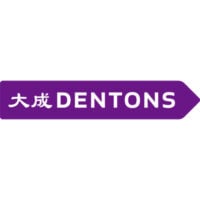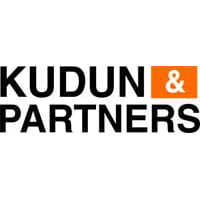
China 2019

General counsel, deputy CEO | Baiyin Nonferrous (Beijing) International Investment Company





Chloe Xu
General counsel, deputy CEO | Baiyin Nonferrous (Beijing) International Investment Company
What are the most important transactions and litigations that you have been involved in during the last two years?
First, an asset restructuring project: The major asset restructuring project is the first project for Baiyin Group in the capital market area since its A-share listing. Prior to the listing, Baiyin Group held a 100% stake of Gold One Group in South Africa, in conjunction with a China-Africa Development Fund and Changxin (Tianjin) Equity Investment Fund Partnership. The main business of Gold One Group is the mining and exploration of gold in South Africa, which has strong synergy with the business of Baiyin Group in production scale and market channels. The main difficulty of the project is that we needed to negotiate with both counterparties simultaneously and to pay the consideration by issuing shares to buy some of the assets. As the subject matter of the transaction is in South Africa, our legal team led the investigation in South Africa and coordinated lawyers of all seven jurisdictions involved in the transaction – China, South Africa, Cayman Islands, British Virgin Islands, Cyprus, Mozambique and Australia – to work together. The main work included on-site due diligence, reviewing and signing transaction documents, information disclosure of the listed company, payment of consideration, changes in related shares, finalisation of legal opinions in each jurisdiction, submitting documents to the CSRC (China Securities Regulatory Commission) M&A Reorganization Committee and others. The project was successfully approved by the CSRC in May 2018.
Also, the Banro recapitalisation and restructuring project: Baiyin Group cooperated with the China-Africa Fund for Industrial Cooperation on the Banro project. Banro Corporation is a Canadian-incorporated gold company dual-listed on the Doren Stock Exchange and New York Stock Exchange. Its main assets are two gold mines and two exploration projects in Congo. To date, the total amount that Baiyin Group has invested in the project is around US$181m, where the Group organised and implemented a portfolio of investment projects and increased its investment in Banro Corporation. It has also completed the reorganisation of the company under the Canada Business Corporations Act and the Canada Companies’ Creditors Arrangement Act from 2017 to 2018. After completion, Baiyin Group became a strategic shareholder and major creditor of Banro Corporation. Our legal team participated in the negotiation and due diligence of the project and completed the review, revision and signing of relevant legal agreements – preferred stock, notes and gold forward – as well as managed the completion and delivery of all related agreements mentioned above.
How do you suggest in-house lawyersbuild strong relationships with business partners?
In-house lawyers must learn to understand issues from the perspective of their internal business partners. It is not simply giving bare legal advice, or minimising the company’s legal risks. In-house counsel must not see their role as siloes, and should be humble to learn enough about their partners’ business in order to give them the advice they need. In-house counsel must strive to be relevant and value-add, to prevent and solve problems for their partners. Continuous learning is not a luxury, it is a necessity.
What political, economic or regulatory changes have impacted the company and you recently?
Globally, the declining global economy and the volatile geopolitics have no doubt had an impact on the industry and the company’s short term plan. The close link between non-ferrous metal prices, for example copper and zinc, and financial markets means unpredictable commodity prices. As a result, companies are more cautious now with investments. In addition, the deteriorating economy and frequent regional conflicts have limited the company’s choice of countries and regions to invest in. Finally, the company’s profitability can be affected by fluctuations in the foreign exchange market as most of our overseas subsidiaries settle in foreign currencies.
What is the most challenging feature of working within your company’s industry?
The globally challenging economy has limited the industry’s desire to make significant investments overseas, whether it is because of unstable local operational environments or pessimistic or unpredictable economic returns. In certain non-ferrous metal markets, China has occupied over half of the world’s output, such as primary aluminum, copper, zinc, tin, vanadium and more. Domestic mining companies in China can therefore be easy targets for trade protectionism.
What legal and management trends do you see having an impact in your market?
Strengthened environmental protection supervision: The Chinese Ministry of the Environment implemented five national environmental protection standards in January 2019, including the “Technical guidelines for accounting method for pollution source intensity nonferrous metal smelting industry”, which has posed more stringent requirements on environmental protection for the nonferrous metals industry. Strengthened production safety supervision: in January 2018, the State Administration of Work Safety published Safety Security Regulations on Metallurgical enterprise and Non-Ferrous Metal enterprise, which has provided detailed regulations on the production safety of metallurgical enterprise and non-ferrous metal enterprise and holds unsafe production strictly accountable. Risks of international disputes: Since 2010, the company has been closely following the nation’s “go global” strategy and has actively invested overseas as part of its long term strategy. After several years of development, the company’s overseas business covers Africa, the Americas, Central Asia, Southeast Asia, Hong Kong and other countries and regions. However, given the uncertain trade and economic prospects, there will inevitably be disputes with business partners, which will need to be handled in a professional and efficient way.
Do you use any “legal tech” products and do you find them a helpful management device?
We use reputable legal databases such as Westlaw, LexisNexis, practical law and PKULaw frequently. These legal products have greatly improved the efficiency of legal team’s research. The junior team is to some extent freed from clerical and repetitive work and can focus on substantive learning. They also help the legal team keep updated on the latest law and regulations promptly.